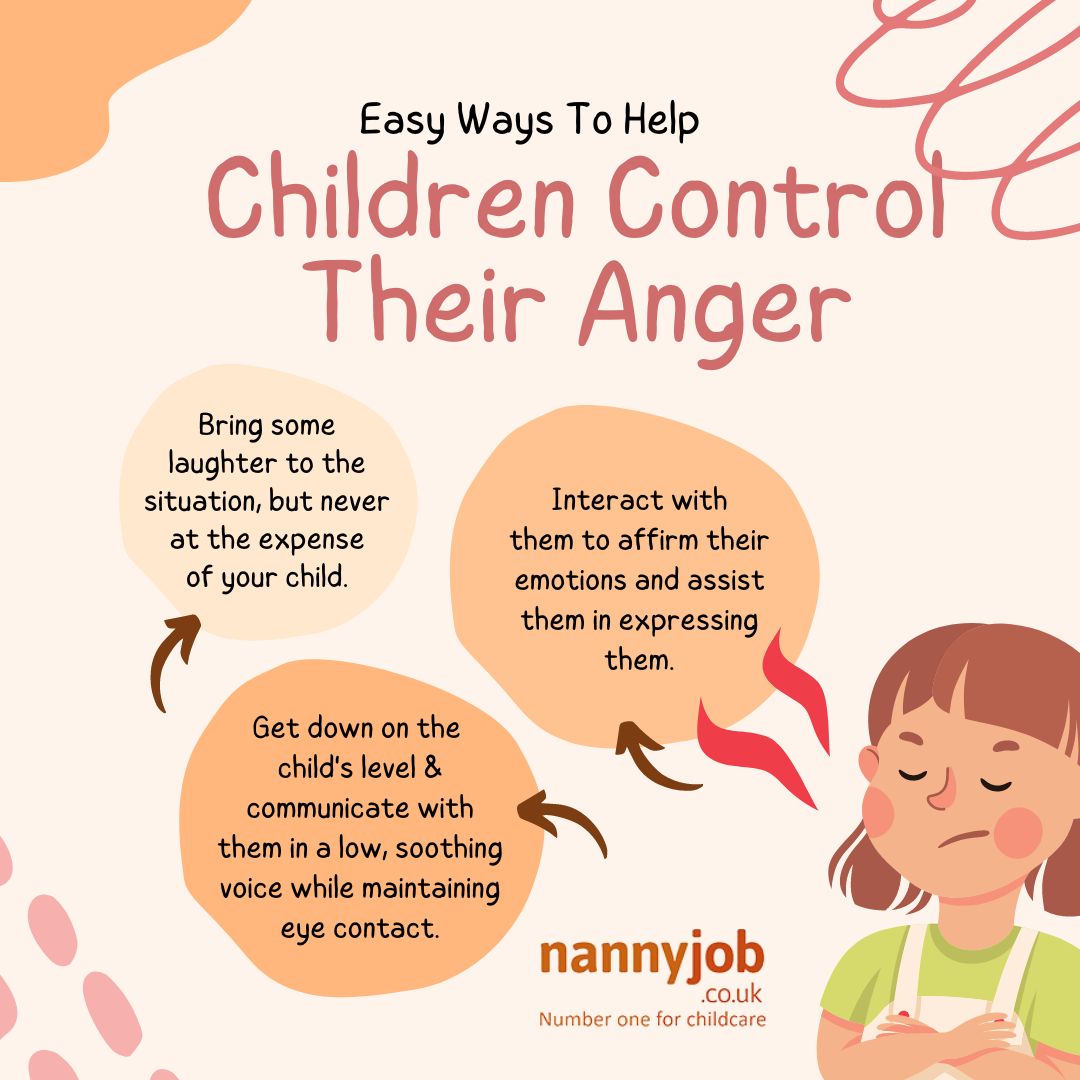Introduction
Anger is a natural emotion, and everyone experiences it, including children. However, learning how to manage and express anger in a healthy way is a crucial skill that can benefit children throughout their lives. As parents, nannies, and childcarers, it’s important to teach children effective strategies for controlling their anger. By helping children understand and manage their emotions, we can foster emotional intelligence and resilience. Here are some practical ways to help your child control their anger.
1. Teach Them to Recognise Their Emotions
The first step in managing anger is recognising it. Help your child identify the physical and emotional signs of anger, such as a racing heart, clenched fists, or feelings of frustration. Encourage them to name their emotions, whether it’s anger, sadness, or disappointment. This awareness is the foundation of emotional regulation.
2. Model Calm Behaviour
Children learn by observing the adults around them. Demonstrate calm and composed behaviour, especially in challenging situations. Show them how to handle frustration without losing control. By modeling healthy ways to deal with anger, you provide a powerful example for your child to follow.
3. Teach Deep Breathing and Relaxation Techniques
Deep breathing is a simple yet effective way to calm down. Teach your child to take slow, deep breaths when they feel angry. You can also introduce other relaxation techniques, such as counting to ten, visualizing a peaceful place, or using a stress ball. These tools can help them regain control over their emotions.
4. Encourage Physical Activity
Physical activity is a great way to release pent-up energy and frustration. Encourage your child to engage in activities they enjoy, such as running, dancing, or playing sports. Physical exercise can help reduce stress and improve mood, making it easier for children to manage their anger.
5. Create a Calm Down Space
Designate a quiet space where your child can go to calm down when they feel overwhelmed. This could be a cosy corner with pillows, books, and calming toys. Encourage them to use this space when they need a break. It’s important to make this a positive and safe space, not a place for punishment.
6. Teach Problem-Solving Skills
Help your child develop problem-solving skills to address the source of their anger. Encourage them to think about solutions or alternative ways to handle situations. Discussing different scenarios and practicing responses can empower them to manage their emotions constructively.
7. Use Positive Reinforcement
Acknowledge and praise your child when they handle their anger well. Positive reinforcement can motivate them to continue using healthy coping strategies. Celebrate their efforts and progress, no matter how small.
8. Set Clear Boundaries and Expectations
Establish clear rules and consequences for aggressive behavior. Consistency is key in helping children understand what is acceptable and what is not. Make sure they know that while it’s okay to feel angry, it’s not okay to hurt others or break things.
Conclusion
Helping your child learn to control their anger is an ongoing process that requires patience and consistency. By teaching them to recognise their emotions, providing coping strategies, and setting clear boundaries, you can support their emotional development and well-being. Remember, the goal is not to suppress anger but to express it in a healthy and constructive way.





